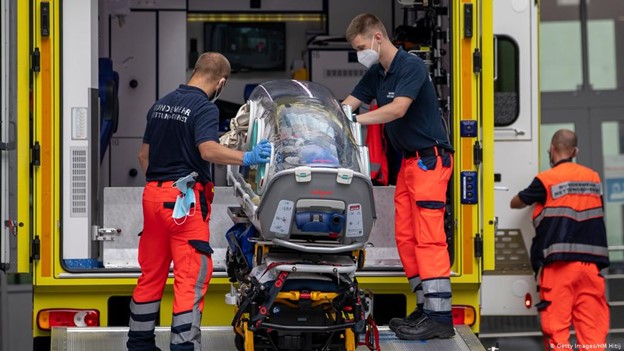In the judgment of history, the most significant shift inaugurated by the Trump administration may prove to be a shift in the relationship between the United States and China — a shift with profound potential ramifications on global trade, regional power balances, many developing-market economies, and many global industries. The shift that began is unlikely to be rolled back under the Biden administration, although it may be pursued in a less volatile manner. The issues at stake go beyond the interests of any particular political party or persuasion, and the steersmen of the U.S. ship of state know it, whatever demeanor they think needs to be projected to the electorate. 2016 marked a lasting change in the course of the U.S./China relations that had been underway since President Nixon’s 1972 visit.
Europe has a different but equally pressing geopolitical conundrum: Russia. However, it is a problem that Europe has been unwilling to face. Russia’s presence as a geopolitical gadfly in many regions is of global concern, of course; but as Europe’s near neighbor and a shadow hanging over the countries of the former Soviet sphere, it has particular significance for the bloc. Unaddressed, unchallenged, and appeased, Russia’s illiberalism is a slow-burning threat to the life and growth of the free markets and liberal democracies that lie in its shadow.
Both France and Germany seem constitutionally oriented to this appeasement. Germany has pressed forward with the Nord Stream 2 project, which will deepen European dependence on Russia for energy. (We’ve written extensively about this project in the past, and its roots in the Soviet-leaning Ostpolitik of some German leftists of the 70s and 80s.) Not even Russian hacking of the Bundestag in 2015 could steel the resolve of German policymakers to reject the Trojan horse of Russian natural gas. France’s Emmanuel Macron strategizes on Russia with such a long time-frame that critics wonder if he has any resolve to address the issues.
Recently, the European Union’s top foreign policy and security official, Josep Borrell, made a humiliating visit to Russia in which he abjectly demonstrated European weakness, enduring sly and biting criticism from his Russian counterparts while failing to press the case of the imprisoned Russian opposition leader, Alexei Navalny. (Navalny was jailed upon his return to Russia from Germany, where he had been treated for a poison attack believed to have been conducted by Russian operatives. The poison used, a novel Novichok agent, is from a group of chemicals that have been favorites for political assassinations connected to Russia’s FSB.)
Alexei Navalny On His Way to a German Hospital, August 2020

This concerted determination not to use any of Europe’s economic or military clout to improve the human rights behavior of Russia can only serve to embolden illiberal leaders in Russia’s shadow, and create anxiety in those countries that have now enjoyed a generation of freedom from the Soviet yoke. We note that some of those economies are among Europe’s most robust sources of growth and innovation. Typically, those countries are also much more clear-eyed about Russian intransigence, particularly the Baltic states of Latvia, Lithuania, and Estonia, all of whom depend on NATO to be a reliable shield and deterrent against Russian aggression. Eastern European countries — including Poland, Czechia, Slovakia, Hungary, Serbia, Slovenia, and Croatia — are home to some very well-educated populations of workers and entrepreneurs. Their expertise in engineering, technology, and software could help European growth — if it has a reliably free political and economic environment in which to grow.
Russian misdeeds — whether overt at home, or covert abroad — will also serve to divide Europe’s leaders as they struggle to decide on and implement a concerted response. That division is exactly what Russia hopes for — but it does not bode well for Europe.
Investment implications: Europe’s determination to deepen its dependence on Russia for energy underscores the bloc’s unwillingness to challenge Russia’s metastatic illiberalism. Ultimately, Russia unchecked will be a source of instability and a growth damper, particularly in the developing markets of the Visegrad and former Soviet states. While we don’t believe a hot war with European powers is likely, it remains a distant black swan event. Europe’s unwillingness to stand up to Russian belligerence and human rights abuses is one additional incremental cause for our lack of enthusiasm about Europe’s prospects.

